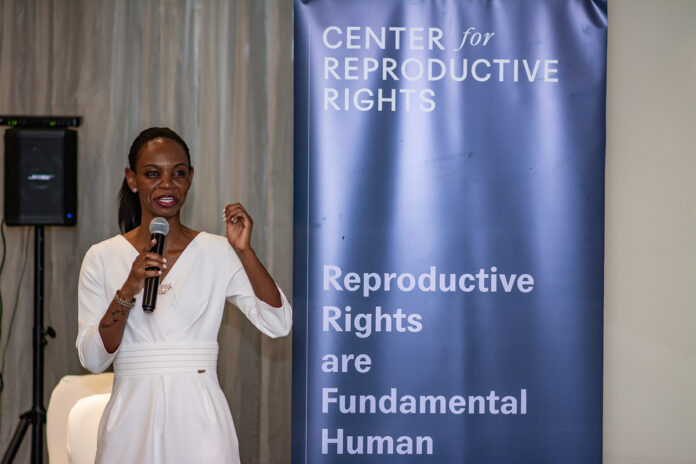Reproductive health stakeholders convened in Nairobi on Friday to address the escalating issues of HIV, teenage pregnancies, and gender-based violence (GBV) in Nairobi County. Organized by the Center for Reproductive Rights and the Reproductive Health Network Kenya, the meeting brought together government officials, healthcare providers, NGOs, community leaders, and civil society partners to develop comprehensive solutions to these challenges.
Participants emphasized the need for integrated healthcare services to tackle HIV, teenage pregnancies, and GBV collectively. Key strategies include expanding access to sexual and reproductive health services, enhancing HIV prevention and treatment programs, and offering comprehensive support for GBV survivors. The stakeholders highlighted the importance of education and awareness campaigns to improve knowledge about safe sexual practices, consent, and available health services. Empowering individuals, particularly the youth, to make informed reproductive health decisions is crucial.
Strengthening policy frameworks and advocacy efforts was also a focal point. Enforcing existing laws and developing new policies to protect and promote reproductive health rights are essential steps. Additionally, community engagement is vital. Involving community leaders and organizations is crucial for reaching vulnerable populations and fostering an environment of support and accountability.
M-PESA Foundation promotes maternal health in Migori and Homa Bay counties
Mary Akubo, from the Ministry of Health’s reproductive and maternal health division, stressed the urgency of the situation: “We are at a critical juncture where coordinated action can significantly reduce the burden of these interlinked issues. The ministry is working with all stakeholders to create a safer, healthier future for the youth.” She revealed that the Kenyan government, through the Ministry of Health and in partnership with international donors and NGOs, had implemented the Kenya Reproductive, Maternal, Newborn, Child, and Adolescent Health (RMNCAH) Investment Framework. This framework aims to improve reproductive health services in slums by enhancing service delivery, upgrading health infrastructure, and making services accessible and affordable for all, including residents in informal settlements. This collaborative effort has significantly improved the availability and quality of reproductive healthcare in these communities.
John Kamau, a representative from a local NGO, underscored the importance of addressing cultural barriers. He noted that changing deep-seated norms and beliefs requires sustained effort and engagement, emphasizing the need for community collaboration to foster understanding and acceptance of reproductive health initiatives.
Nairobi County faces a significant rise in HIV infections, particularly among adolescents and young adults. This is compounded by the alarming rate of teenage pregnancies, which impacts the health and future prospects of young women, perpetuating a cycle of poverty and limited opportunities. Additionally, GBV remains a pervasive challenge, undermining the health and well-being of individuals and communities.
The Kenya Demographic and Health Survey (KDHS) 2022 identified the main drivers of teenage pregnancy as lack of education, poverty, harmful cultural practices, and barriers to accessing sexual and reproductive health services. The stakeholders’ meeting aimed to address these drivers comprehensively through coordinated efforts and community engagement









